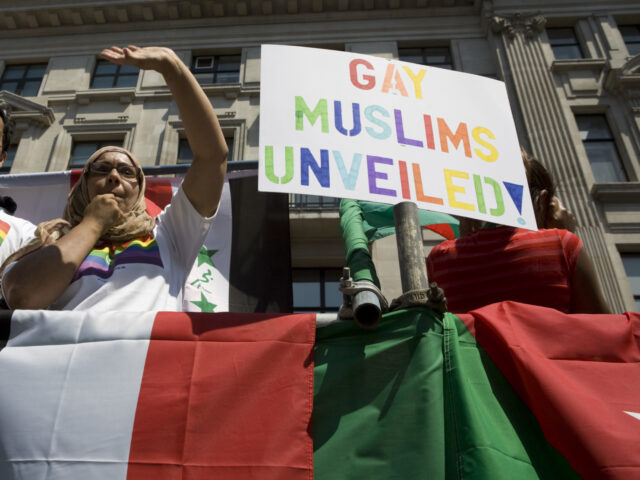Britain’s government may have massively overestimated the number of trans individuals, and residents with a poor grasp of the English language trying to answer a convoluted question on gender identity may be to blame.
The UK’s 2021 census has likely massively overestimated the number of transgender individuals living in England and Wales as a result of the large migrant population in both countries, experts have now said.
According to the Office of National Statistics, 262,000 in both countries claimed in the census that they were transgender, roughly equivalent to 0.5 per cent of the total population.
However, according to a report by The Telegraph, experts now believe that such a figure is inaccurate, with many suspecting that foreign migrants with bad English answering the census claimed to be transgender by mistake.
By compiling the census data, scientists have found that those with a migrant background, as well as those with poor English, were far more likely to claim to be transgender, with the 10 per cent of adults in the country for whom English is not their first language making up nearly one-third of all transgender individuals in the country.
The data — as is — also claims that areas with large migrant populations are disproportionately transgender, and that one in 67 Muslims are also trans, a figure deemed to be unbelievable by experts in a literal sense.
Such massive confusion on the part of the non-native English speakers in the country has been reportedly blamed on how the census asked the public whether they were transgender or not.
Instead of simply asking the answerer whether or not they were trans, the document posed the question: “is the gender you identify with the same as your sex registered at birth?”, a definition of non-transgender individuals said to have been dreamt up by LGBT+ NGO Stonewall.
While the question may be easy to parse for those who speak English as a first language, and particularly for those who have been regularly exposed to lengthy discussions steeped in modern trans politics language in the mainstream media, the wording has clearly foxed some outside of that group linguistically and culturally.
“The ONS were so focussed on how trans people would respond to that question and if it would hurt people’s feelings and I think, as a result, they didn’t think about the vast majority of people and those who don’t share the same language,” University of Oxford Sociology professor Michael Biggs remarked regarding the government’s apparent gaffe.
“Professional, managerial-class people have had the training on gender language and gender identity,” he added. “But a lot of people working on building sites or cleaning hospitals, for example, those are the people that I think are confused and if ONS had asked: ‘Are you trans?’ It would have been simpler, but the way they have formed the question, you are directed to the wrong answer or at least it’s generated confusion.”
“The question they used is Stonewall’s definition of cisgender and it shows just how influential Stonewall is,” he went on to say.
Such a revelation that it is highly likely there are far fewer trans individuals in England and Wales than previously thought will make it even harder for the government to justify its pro-transgenderism policies.
Despite constantly promising to stem the influence of the ideology when speaking to its voter base, the UK’s ruling Conservative Party has been extremely friendly to transgenderism in practice. The Conservatives boast of having the first openly transgender MP in the House of Commons.
Authorities have also previously expressed the desire to make so-called “conversion therapy” for transgender individuals illegal, a move that many fear will render it illegal for certain medical officials to treat people with medical gender dysphoria.

COMMENTS
Please let us know if you're having issues with commenting.